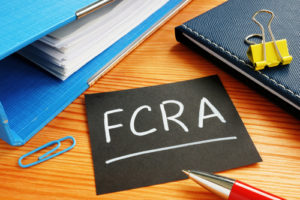
Federal legislation known as the Fair Debt Collection Practices Act (FDCPA) protects debtors from aggressive and abusive behavior from debt collectors. Harassment under the law can include actions like using derogatory slurs, threatening violence, or calling you at unreasonable hours (such as in the middle of the night). If you feel that your rights have been violated, you have the legal right to pursue compensation from the at-fault debt collector or collections agency. Yet, it can be difficult to know where to turn.
If you need a FDCPA attorney, Sue the Collector can help. Our organization is designed to help people in exactly your situation. We analyze the details of your case to understand whether you have a valid, legitimate lawsuit on your hands. If so, we can connect you with an attorney who has the experience and knowledge necessary to get you the compensation you deserve.
Don’t try to go it alone against debt collectors, and don’t simply let them off the hook for harassment and other illegal behavior. To get a FREE consultation on the merits of your case, call Sue the Collector at (866) 768-6005 or let us know more about your case via the form on our contact page. We are ready to help you find the right FDCPA lawyer for your needs.
What to Look for in a FDCPA Lawyer
On your journey for the right attorney, there are a number of factors you might want to consider before bringing a lawyer into your case. These include:
- The attorney or law firm’s case history
- The attorney or law firm’s current caseload
- Reviews from previous clients
- How the attorney or law firm treats you
Case History
Debt collection law is complex and has many facets that are typically not familiar to people who are not legal professionals. Even attorneys may not know much about debt collection issues if they do not take on these cases regularly. When meeting with an attorney, you should ask about their previous cases regarding debt collection matters as well as their results. Ask them questions like:
- How much compensation have you earned for previous clients like me?
- How long have you been practicing law in this area?
Caseload
You will want to check for the attorney’s or law firm’s caseload before signing on. While lots of cases can be an indicator that the lawyer is successful and highly sought-after, you want to make sure that the attorney or law firm has the time necessary to give your case the attention it deserves. Just a doctor with too many patients can only spend a few minutes with each, an attorney with too many cases may not be able to provide the quality representation you need.
Reviews
Online reviews of attorneys are so important that the American Bar Association dedicates room on their website for ways that lawyers can improve their online reputations. Reviews on legal websites can help you gauge the feelings of previous clients. However, take all reviews with a grain of salt. Individual clients may misrepresent the attorney or only tell part of the true story.
Still, if you see a pattern of similar issues (such as the attorney being aloof, failing to communicate, or making decisions without clients’ input), these might be indicators that the attorney is not the one you need.
Your Treatment
Attorneys are with you throughout the duration of your case, and that means they will inevitably develop a relationship with you. They will come to know intimate details such as your financial situation, credit and debt history, and other sensitive matters normally kept private. Make sure that you feel comfortable around the lawyer and their staff, that they treat you sympathetically and with respect, and that you do not feel embarrassed or judged when telling them details related to your case.
How to Know You Need a Lawyer
Before looking for the right FDCPA lawyer, you might want to review your situation and see whether you believe you have been seriously wronged. While understanding the full list of regulations in the FDCPA is not something that would be expected of any civilian, here is a brief checklist of items that might warrant legal action.
- The debt collector calls you before 8:00 a.m. or after 9:00 p.m.
- You are inundated with robocalls daily.
- The debt collector calls your place of work even after you have told them your job does not allow personal calls.
- Your family and friends have been hounded about your location even though the collector should know where you live.
- The debt collector does not properly reveal themselves or pretends to be a member of law enforcement.
- The debt collector uses defamatory language, swear words, racial slurs, or other offensive terms in communication with you.
- You have been threatened with violence, property damage, or harm to your reputation.
If any of those apply to you, you might be entitled to compensation.
Get Help Finding a FDCPA Lawyer for FREE
Sue the Collector has helped many clients in your exact situation seek the justice they deserve. By analyzing your case, we can provide feedback on whether you should pursue legal action. If you want to do so, we can connect you with attorneys who have experience in these types of claims and can fight for your right to compensation. Clients in the past have earned as much as:
- $1,000 for harassment behaviors
- $1,500 for each robocall made illegally
Call our office today to schedule a FREE consultation with our team. Simply dial (866) 768-6005 to speak with a team member. You can also fill out the form on our contact page and we will be in touch as soon as possible.
It’s time to hold debt collectors accountable for their aggressive, abusive behaviors.




